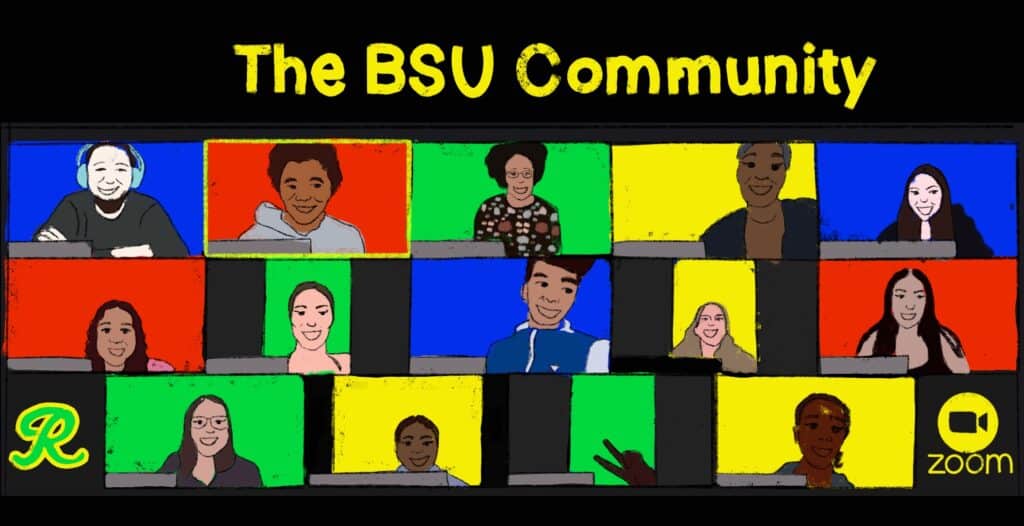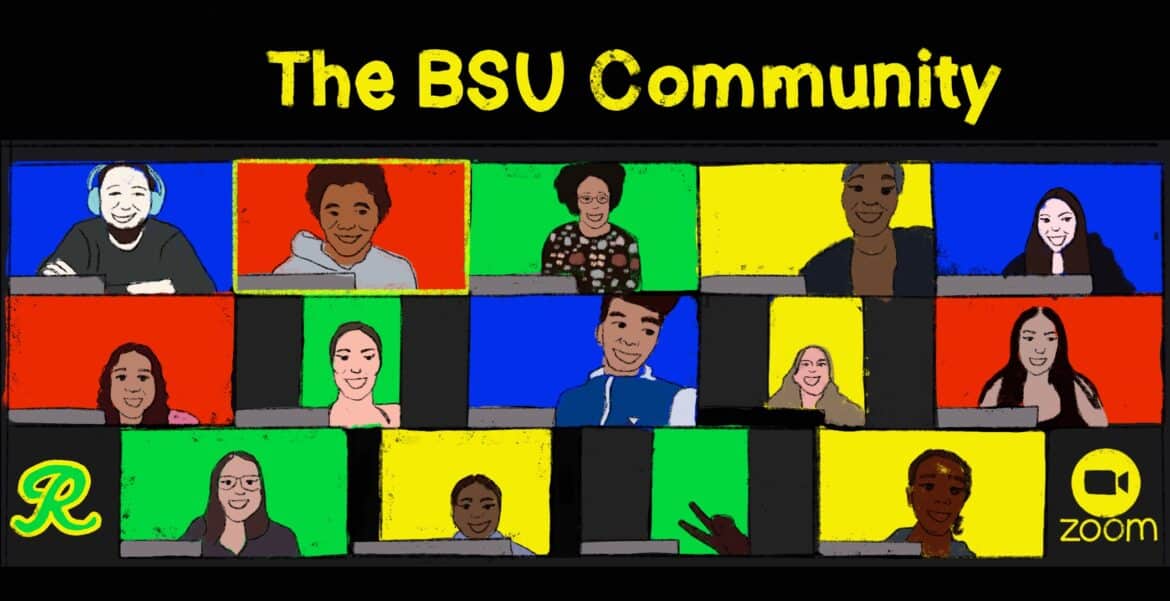
While the groundbreaking level of worldwide support for Black Lives Matter drew many to the issues Black people face for the first time, it was neither surprising nor eye opening for the some twelve members of the Roosevelt Black Student Union who have been following the movement closely for years. If anything, exposing recent years of issues affecting Black people to a worldwide stage was, as for many, a long time coming.
Roosevelt’s Black Student Union President Kissehanet Tesfa, BSU Vice President Kennedy Allan, and BSU Social Media Coordinator Elroe Yayiso welcome the energy the increased support of the BLM movement has brought, but remain clear on their own agenda: “We’re not here to teach kids about racism,” Allan says.
For Roosevelt students, entry to the club is all inclusive. Students leading and participating in the club come from all backgrounds and aren’t necessarily Black students. What bonds the club together are common ideals in changing systemic racism and responding to localized incidents at school and in the nation.
As Jordan Wilson, BSU Teacher Co-Advisor, is careful to point out, the BSU is not about “accomplishments” or outside advocacy, its main goals lie in community building within Roosevelt and the district.
The BSU does club engagement and discussion surrounding what being a Black citizen, American, and student at RHS means.
Though meetings are often serious, the group has a lot of fun too in celebrating Black culture, joking around, and balancing heavier discussions.
In interviewing three members, their community ideals shone through. There were no lines between members, or seniority based “hierarchy.” Dialogues in the interview between the members were collaborative, each member adding onto another person’s statement in a way that reflected the kind of harmony so special to a tight knit community.
Club President Tesfa describes the BSU as, “a safe community for the Black students at Roosevelt to talk about anything or just hang out.” Tesfa adds, “Mostly we do fun activities and discussions.”
This year, members emphasized the increased activity of the club and its strengthening connections with other schools. Tesfa says, “This year we’ve come together with other schools’ BSUs and have had fun [connecting as a larger community].” In recent times, they have connected with over fifteen schools, often taking part in larger discussion groups and activities.
Additionally, the club has had the time and freedom this year to create content focused on specific and less introductory topics within Black culture.
Vice President Allan says, “Since we didn’t have an assembly…we were doing much more for ourselves and for our community.” On the MLK Jr. Assembly she adds, “teachers just expect us to do it each year even though we’re…children…it’s very tiring.”
Last year, turnout for the MLK assembly was staggeringly low. This was an assembly painstakingly put together in a mere week by a small group of hardworking BSU members. Allan describes the repeated pattern of low attendance as, “a constant slap in the face.”
From events like attendance at the MLK assembly to other schoolwide racial incidents, Social Media Coordinator Yayiso says, “The school needs to hold students accountable.” That’s not the work of the BSU, but of the teachers and staff of Roosevelt, they emphasize.
“Justice doesn’t have to be fixing systems; sometimes it’s just holding space,” Allan says. In BSU, this mentality is felt through group bonding and weekly discussion. As Yayiso says it’s, “a space for everyone [where] you will not be judged.”
The Roosevelt BSU isn’t about oversized trophies and material accomplishments; they are proof that a community for Black voices is exactly what Roosevelt needs.
